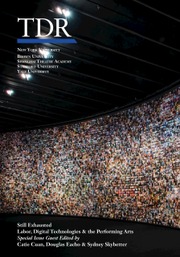No CrossRef data available.
Article contents
The Epic of Survival
The Climate Crisis and Heroic Form
Published online by Cambridge University Press: 10 March 2023
Abstract
Traditional performance genres are inadequate to represent the climate crisis, whose proper narrative form is the epic. Using epic genres instrumentally can help create the cultural imaginaries that will move people to call for the revolution of our planet-destroying economic system, although at the same time it will be necessary to isolate and neutralize the ways that epic modes in popular entertainment entrench the power of fossil-fuel interests and normalize incipient ecofacism.
- Type
- Names and Forms
- Information
- Copyright
- © The Author(s), 2023. Published by Cambridge University Press for Tisch School of the Arts/NYU


